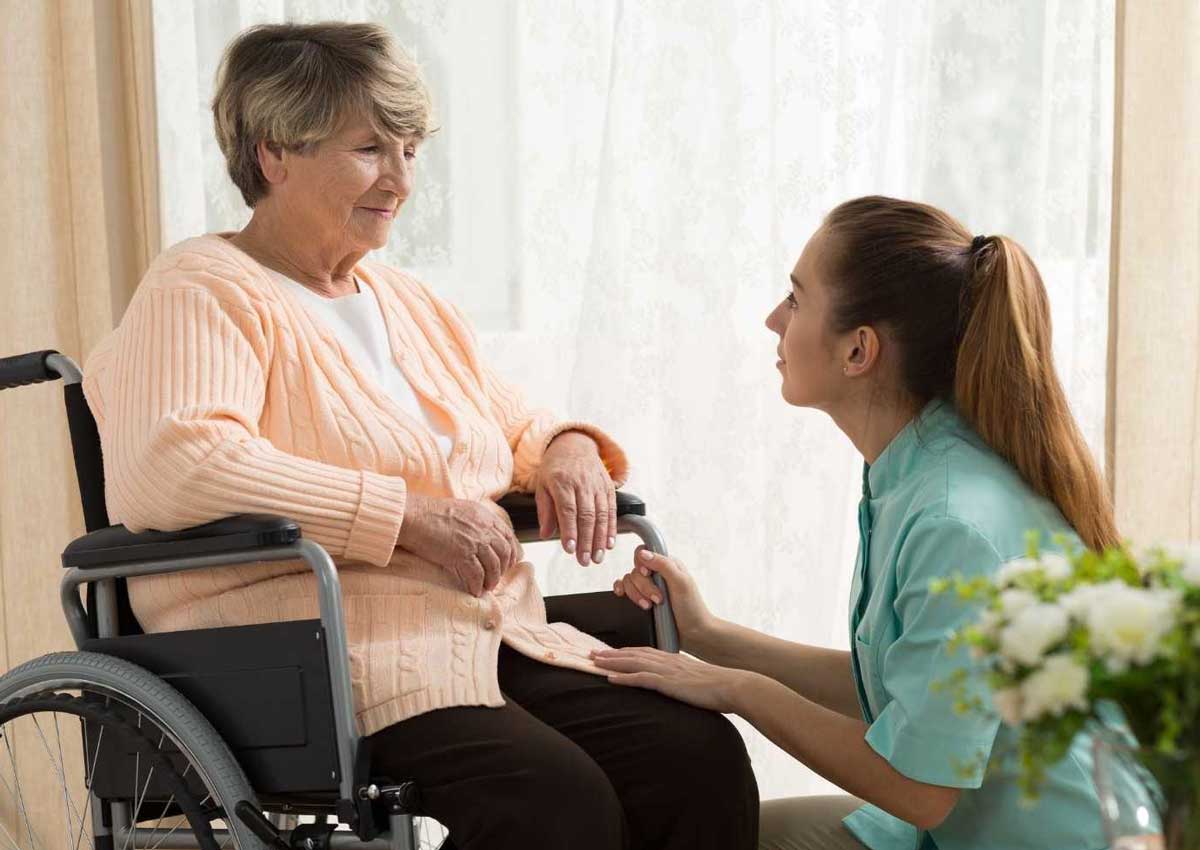
Financial Intelligence for Retirement
February 19, 2021
How Do You Know It’s Time for Hospice?
February 24, 2021The Duties of a Senior Caregiver
Senior caregivers: who they are and what they do
As Americans grow older, senior caregivers are becoming an increasingly fundamental part of the medical system. They tend to patients in the most direct way. Caregivers help them adjust to the challenges and limitations that accompany the aging process.
Caregivers help seniors cope with the challenges of aging. They provide seniors with the physical and emotional support they need in order to live safely and comfortably. Working day-to-day with their clients, they are an indispensable link in a chain connecting seniors to healthcare organizations and the wider community.
The impact of caregivers is far-reaching, and often transformative to the lives of those in their care. For patients recovering from illness or accident, the presence of a caregiver can help them regain their strength and vigor in an astoundingly short period of time, enabling them to live independently on their own terms.

The duties of senior caregivers
Caregivers assist with what’s formally known as Activities of Daily Living (ADL). Though not every senior will need help with each of them, they are essential for a person’s dignity and well-being. And caregivers do more than merely ADLs; they play a vital role in the health and happiness of older adults.
Bathing, showering, and grooming
The most important duties of a senior caregiver involve personal hygiene. Many seniors who are recuperating from an injury, dealing with balance issues, or becoming forgetful find it difficult to keep themselves clean and groomed.
Caregivers may have to help them in and out of the shower, comb their hair, trim their nails, or brush their teeth. They might also have to help them put on their clothes or sit on the toilet. These can be delicate matters, but looking after them not only protects seniors from infection—it also boosts their mental health. Looking good and feeling fresh and clean improves self-esteem while reducing anxiety, depression, and discomfort.
Cleaning
For seniors, clutter can be dangerous. A simple fall can have drastic consequences for their health and mobility. Loose items on floors and stairways pose a trip hazard. Anything underfoot has the potential to cause an accident. Caregivers help scrub countertops, rinse dishes, vacuum the carpet, take out the trash, and with anything else needed to keep the house clean and accessible.
Cooking and grocery shopping
Sadly, many seniors struggle to eat healthy. As people get older, the effort to lift pots and pans, meal prep, or mix and stir ingredients can become too much for them. They might therefore need help preparing food and cooking their meals. A few may even forget when they last ate or require assistance holding their utensils.
To ensure they’re eating well, and regularly, caregivers may also assist seniors with their grocery list and accompany them to the store. In some cases, if their client has mobility issues, they might just do the shopping themselves.
Transportation
Seniors need to get around, the same as anyone else, whether it’s for fun, doctor’s appointments, or just regular errands. Unfortunately, many seniors are unable to drive anymore. The reason may be health issues, impaired vision, or just general safety concerns.
For these reasons, one of the primary duties of a senior caregiver is to drive them wherever they need to be, whether it’s to the movies, checkups, a friend’s house, the local library, or senior daycare. They help them every step of the way, not just on the road, but getting in and out of the car.
Sometimes, mobility needs are more advanced than caregivers can accommodate. Parentis Health offers specialized transportation services for patients with walkers, wheelchairs, and even gurney needs, providing a viable, affordable alternative for non-medical transport needs that assists patients and caregivers alike.
Exercise
It is important for seniors to keep moving. Even a short walk can do wonders for their health, improving their physical and emotional wellbeing. Unfortunately, as with most everyday activities, exercising becomes more difficult with age, both physically and mentally.
Without someone by their side, seniors may find it difficult to stay motivated, even if regular exercise is required by their doctors. The praise and encouragement of a caregiver can make all the difference in the world when it comes to sticking with a prescribed regimen.
Medication management
As their health becomes more complex, it is not uncommon for seniors to find themselves on a dozen different medications, each taken at a separate time on a separate day. Keeping track of which pills to take can become a very difficult task.
Caregivers make sure each patient’s medication is taken correctly, at the proper time, and at the correct dosage. They may also be responsible for refilling the client’s prescriptions and keeping them secure within the home.
Advocacy
Caregivers are required to document everything that happens during their shift. They ensure nothing about the patient’s well-being slips through the cracks.
But because they work with seniors so closely, they are often among the first to catch the warning signs of a serious illness. The information they provide is invaluable to the doctors, nurses, and therapists responsible for planning the patient’s care.
Companionship
Last but not least, caretakers offer seniors regular companionship. Many seniors live alone and can go for days without talking to anyone. The loneliness that they experience can have serious health consequences. This can range from greater a risk of depression, dementia, and anxiety to a wide range of physical ailments. Loneliness has even been shown to shorten a person’s lifespan.
Having a caregiver come to visit each day has a remarkably positive impact on seniors. Companionship enriches a person’s life, keeping their minds sharp and their hearts full. Even something simple as a casual conversation or playing a card game affords seniors a sense of belonging. This can help them live happier, longer, more independent lives.

